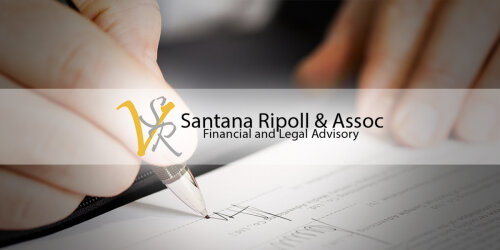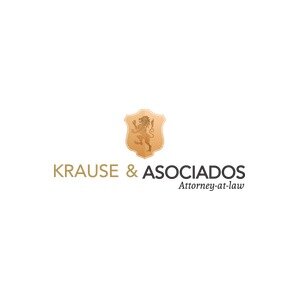Best New Business Formation Lawyers in Puerto Plata
Share your needs with us, get contacted by law firms.
Free. Takes 2 min.
List of the best lawyers in Puerto Plata, Dominican Republic
About New Business Formation Law in Puerto Plata, Dominican Republic
New Business Formation in Puerto Plata, Dominican Republic, involves a legal process that is essential for entrepreneurs seeking to establish a commercial presence in this vibrant region. The process encompasses the registration of a business entity, compliance with local regulations, and obtaining necessary permits to operate legally. Puerto Plata, known for its tourism and economic growth, provides a fertile ground for new businesses, offering opportunities in various sectors, including hospitality, trade, and services. The legal framework is designed to foster entrepreneurship while ensuring fair practices and adherence to local and national laws.
Why You May Need a Lawyer
There are several situations where seeking legal assistance during New Business Formation in Puerto Plata can be beneficial:
- Understanding Legal Requirements: A lawyer can help navigate the complex requirements related to business types, taxation, labor laws, and environmental regulations.
- Business Structuring: Advising on the most appropriate type of business entity, be it a sole proprietorship, partnership, or corporation.
- Document Preparation and Review: Ensuring that all documentation is correctly prepared and submitted in compliance with the law.
- Permitting and Licensing: Assistance with obtaining the necessary licenses and permits to operate legally.
- Contractual Agreements: Drafting and reviewing business contracts to protect your interests.
- Dispute Resolution: Legal representation in case of disputes with partners, employees, or other stakeholders.
Local Laws Overview
When forming a new business in Puerto Plata, several key aspects of the local laws should be considered:
- Business Registration: All businesses must be registered with the Chamber of Commerce and Production. This involves obtaining a National Taxpayer Registry (RNC) number and registering the company’s name.
- Types of Legal Entities: Options include Individual Companies, Limited Liability Companies (SRL), and Corporations (SA), each with unique benefits and requirements.
- Taxation: Corporate tax rates and the need for an RNC require careful planning. Engaging an accountant may be advisable.
- Labor Law Compliance: Understanding labor laws, including wages, working conditions, and employee rights, is crucial.
- Environmental Regulations: Businesses may require environmental clearances, especially those with a potential environmental impact.
Frequently Asked Questions
What are the initial steps to start a business in Puerto Plata?
Begin by determining the type of business entity, registering with the Chamber of Commerce, and obtaining a tax number (RNC).
What is the difference between SRL and SA?
An SRL (Sociedad de Responsabilidad Limitada) is similar to an LLC, suitable for small to medium businesses, while an SA (Sociedad Anónima) is a corporation better for larger ventures.
Is a local partner necessary to start a business?
While not mandatory, having a local partner can help navigate local customs and regulations effectively.
How long does it take to register a business?
The registration process can take from a few weeks to a few months, depending on the completeness of the documentation and any approvals required.
What are the common costs associated with starting a business?
Costs may include registration fees, legal and accounting services, and potential costs for permits and licenses.
Are there incentives for foreign investors?
Yes, the Dominican Republic provides several incentives, particularly in tourism and free trade zones, to encourage foreign investment.
What are the common documents needed for business registration?
Typically, you'll need a business plan, identification, proof of address, and any documents pertaining to the structure of the business entity.
Can I operate as a sole proprietor?
Yes, sole proprietorships are possible but may offer fewer legal protections than setting up a corporate entity.
What about intellectual property protection?
It is crucial to register trademarks and patents through the National Office of Industrial Property (ONAPI) to protect your intellectual property.
What happens if there is a dispute with a partner or client?
Legal interventions or mediation might be necessary. Having a lawyer draft clear contracts can help prevent disputes.
Additional Resources
Consider reaching out to the following resources for assistance:
- The Chamber of Commerce and Production of Puerto Plata: Offers guidance on business formation and required documentation.
- Centro de Exportación e Inversión de la República Dominicana (CEI-RD): Offers advice and resources for investors.
- Local legal firms specializing in commercial law: Provide comprehensive services for business formation and legal compliance.
- ONAPI: For intellectual property registration and protection.
Next Steps
If you require legal assistance for New Business Formation in Puerto Plata, consider the following steps:
- Consult with Legal Experts: Engage with a local attorney with experience in business law to understand your legal options and obligations.
- Prepare Required Documentation: Work with your lawyer to gather and complete all necessary paperwork for registration and certification.
- Navigate Permits and Licensing: Collaborate with your legal team to ensure all operational permits are secured before commencing business activities.
- Clarify Business Operations: Define your business structure, management roles, and prepare employee agreements to ensure smooth operations.
- Regular Legal Reviews: Schedule periodic legal reviews to ensure compliance with new regulations or changes in business operations.
Having the right legal support can be pivotal in establishing a successful business in Puerto Plata, ensuring compliance and optimizing operational efficiency.
Lawzana helps you find the best lawyers and law firms in Puerto Plata through a curated and pre-screened list of qualified legal professionals. Our platform offers rankings and detailed profiles of attorneys and law firms, allowing you to compare based on practice areas, including New Business Formation, experience, and client feedback.
Each profile includes a description of the firm's areas of practice, client reviews, team members and partners, year of establishment, spoken languages, office locations, contact information, social media presence, and any published articles or resources. Most firms on our platform speak English and are experienced in both local and international legal matters.
Get a quote from top-rated law firms in Puerto Plata, Dominican Republic — quickly, securely, and without unnecessary hassle.
Disclaimer:
The information provided on this page is for general informational purposes only and does not constitute legal advice. While we strive to ensure the accuracy and relevance of the content, legal information may change over time, and interpretations of the law can vary. You should always consult with a qualified legal professional for advice specific to your situation.
We disclaim all liability for actions taken or not taken based on the content of this page. If you believe any information is incorrect or outdated, please contact us, and we will review and update it where appropriate.











